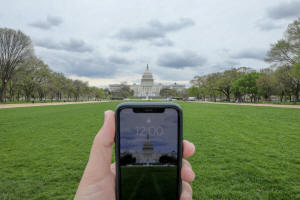|
The Commerce Department's National Telecommunications and
Information Administration (NTIA) is developing a National
Spectrum Strategy with a goal to identify at least 1,500
megahertz of spectrum to study for potential new uses.
"Today spectrum plays a central role in American life in a way
that it never did before, from cellphones to aviation safety to
weather prediction," NTIA Administrator Alan Davidson said in an
interview with Reuters.
He said the 1,600 megahertz goal over a decade was achievable
but difficult.
Commerce Secretary Gina Raimondo said NTIA, which jointly
manages U.S. spectrum with the Federal Communication Commission
(FCC), is seeking public input to identify "new spectrum bands
for potential repurposing that will spur competition and
innovation for years to come."
The strategy will address current and future spectrum needs,
including fixed and mobile wireless broadband, next-generation
satellite communications and other space-based systems; advanced
transportation; and industrial and commercial applications.
It will also address wireless medical devices and telemedicine,
the Internet of Things and smart cities, and key government uses
including national defense, national airspace, critical
infrastructure and climate monitoring and forecasting, Davidson
said.
Congress last week let the FCC's authority to auction wireless
spectrum lapse for the first time in three decades, prompting
some lawmakers to quickly restore the authority that has raised
more than $200 billion in proceeds for the U.S. government.
Demand for spectrum use is soaring as are planned new uses like
connected vehicles. Mobile U.S. wireless data traffic rose 20%
in 2021.
Davidson said a contentious dispute over 5G C-Band spectrum and
aviation use showed industry and government recognize "we need a
coordinated approach" to managing current and future spectrum
use.
"We've got 6G networks coming, new mega-constellations of
satellites, connected automobiles, the internet of things - all
of that demands new uses of spectrum," Davidson said.
(Reporting by David Shepardson; Editing by Robert Birsel)
[© 2023 Thomson Reuters. All rights
reserved.]
This material may not be published,
broadcast, rewritten or redistributed.
Thompson Reuters is solely responsible for this content.

|
|





